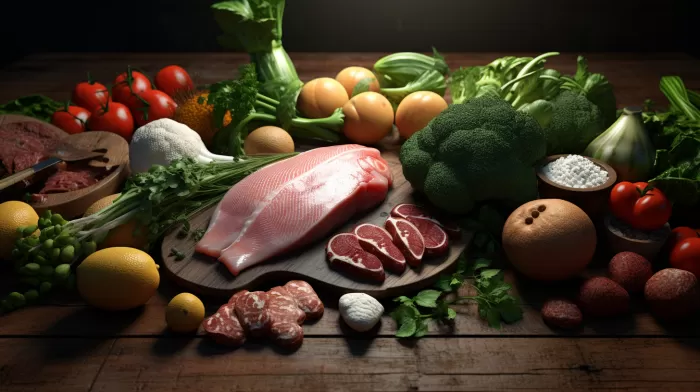Struggling with depression can be a challenging and exhausting experience. However, in some cases, the root cause could be as simple as a mineral deficiency. In fact, studies have shown that deficiencies in zinc and iron may be related to a higher risk of depression. By understanding how these two vital minerals impact the brain’s functionality, you can potentially take the first step toward overcoming depression and paving the way for a happier and healthier life.
Zinc and Iron: Brain Function Superheroes
Both zinc and iron are crucial for cellular function as well as the modulation of the nervous system. Research has shown that these two minerals have a significant impact on the serotonergic, dopaminergic, and glutamatergic systems. These vital neural transmission systems are closely linked to depression, which means that ensuring healthy levels of zinc and iron can play a significant role in preventing or treating depressive episodes.
The Malnourished Brain and Depression
Unfortunately, many people in today’s world suffer from various micronutrient deficiencies due to our reliance on processed and packaged food. These deficiencies have been linked to a wide range of health issues, including depression.
Take the hippocampus, for example. This part of the brain is responsible for memory, learning, and emotion. Research has shown that it can shrink during periods of depression. However, this shrinkage is not permanent. It can be reversed by ensuring that your body and brain receive the needed nutrients.
The hippocampus is particularly susceptible to zinc deficiency, leading to synaptic changes in the brain that can result in neurotransmitter imbalances and stress. This, in turn, often causes neurotoxicity and triggers harmful inflammatory and immune responses.
When the zinc levels in your body are sufficient, you experience reduced inflammation markers, better cell immunity, development, and maturation. As depression is also linked to higher levels of oxidative stress, zinc’s antioxidant properties can help protect your brain from the harmful effects of free radicals.
Iron is just as vital, as it helps regulate cellular function and effectively synthesize DNA coding. In the context of brain health, iron helps oxygenate central brain tissues and plays a crucial role in synthesizing neurotransmitters such as dopamine and serotonin. Though the relationship between iron and depression is less clear-cut than zinc, researchers believe that iron is essential in preventing toxicity and modulating functions in brain tissues.
Boost Your Zinc and Iron Intake
One of the best ways to increase your levels of zinc and iron is to consume whole foods that contain these minerals. For zinc, these can include foods such as oysters, cocoa, wheat germ, beef, lamb, sesame, hemp, poppy and pumpkin seeds, whey protein isolate, and egg yolk. Adult men require about 11 mg of zinc per day, while adult women need roughly 8 mg per day.
When it comes to iron, sources include two forms: heme iron and nonheme iron. The body absorbs heme iron more efficiently, which can be found in animal-based foods such as meat, fish, poultry, and seafood. Nonheme iron is sourced mainly from plant-based foods, including quinoa, spinach, green leafy vegetables, nuts, seeds, cocoa, and various herbs and spices. Consuming vitamin C-rich vegetables and herbs can improve the absorption of nonheme iron, as can eating nonheme iron with heme iron sources. Men and postmenopausal women require around 8 mg of iron per day, while premenopausal women need around 18 mg.
It’s important to note that vegetarians and vegans may be at an increased risk of zinc and iron deficiencies since many sources of these minerals are found in animal foods. While breakfast cereals and packaged products may contain added minerals, their negative ingredients can negate potential benefits. To receive the most bioavailable vitamins and minerals, focus on consuming whole foods as much as possible.
To fight depression, you need every tool at your disposal. By investigating the potential link between mineral deficiencies and depression, you could be one step closer to breaking free from mental struggles and enjoying improved mental health. Making changes to your diet to include more zinc- and iron-rich foods may help nourish your brain and help break the cycle of depression.



